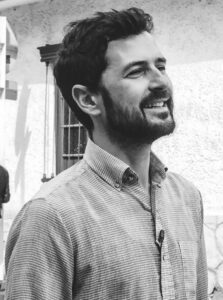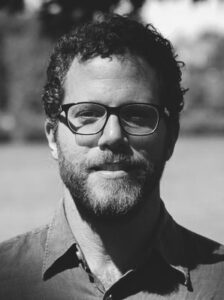The Evasion Lab
Thinking the Underside of Surveillance
The Evasion Lab is a research collective committed to thinking the underside of surveillance. We focus on the themes of data, law, and finance—to consider how institutions and individuals (for better, for worse) make themselves illegible and thus ungovernable.
We gather scholars, writers, artists, and activists in order to amplify their work through fellowships, forums, and public events. Crossing disciplines and borders, the Evasion Lab works from the assumption that critical reflection and creative production are political acts.
01
Events
The Evasion Lab sustains an ongoing conversation among members, fellows, and invited guests about evasion’s analytical capacity.
02
Sawyer Seminar
The Andrew Mellon Foundation awarded Professors O’Neill and Clarke of the University of Toronto a Sawyer Seminar titled “Evasion: Thinking the Underside of Surveillance.”

The Collective
University of Toronto
Oceans Lab,
University of Michigan
Columbia University
University of California, Los Angeles
London School of Economics
Desarrollo, Universidad de los Andes
Columbia University
Princeton University
Members

Kevin Lewis O'Neill
University of Toronto

Kamari Clarke
University of Toronto
Kamari Maxine Clarke is a Professor of Transnational Justice and Sociolegal Studies at the University of Toronto where she teaches in the Centre for Criminology and Sociolegal Studies and the Centre for Diaspora and Transnational Studies. Clarke’s current project interrogates questions of evidence, knowledge formation and new technologies in relation to the uses of Artificial Intelligence, big data, geo-spatial technologies and digital humanitarian-crisis tracking tools by which to understand how civil society groups are engaged in mobilizing knowledge about violence and the disappeared. She examines this in relation to the ways that perpetrators of violence engage in evasion practices to render their work illegible to such forms of documentation.
kamari.clarke@utoronto.ca
Columbia University
Naor Ben-Yehoyada (PhD, Social Anthropology, Harvard University, 2011) is Assistant Professor in the Department of Anthropology at Columbia University. His work examines unauthorized migration, criminal justice projects, the aftermath of development, and transnational political imaginaries in the central and eastern Mediterranean. His monograph, The Mediterranean Incarnate: Transnational Region Formation between Sicily and Tunisia since World War II, offers a historical anthropology of the recent re-emergence of the Mediterranean, as an example for the processes through which transnational regions form and dissipate. His current work follows anti-Mafia investigators of different professions and the ongoing process of the criminalization of ritual association.
nhb2115@columbia.edu
Centre of Development Studies, University of Cambridge
Graham is a political ethnographer interested in practices and assumptions of power amidst inequality. He is especially motivated to identify and question forms of entrapment and escape from power and capitalism, particularly in cities of the Global South. He interrogates these questions primarily from Brazil -a country long entwined with the expansion of capitalism, inequality and racial order- but also in the global capillaries of Silicon Valley. His two books, The Killing Consensus: Police, Organized Crime and the Regulation of Life and Death in Urban Brazil (2015), and Keep the Bones Alive: Missing People and the Search for Life in Brazil (2022), are published by the University of California Press. He is Professor of Global Politics and Society at the University of Cambridge and a Fellow of Queens’ College.

Jatin Dua
University of Michigan
Jatin Dua is is the inaugural Co-Director of Evasion Lab and is a Professor in the Department of Anthropology whose research focuses on maritime piracy in the Indian Ocean and projects and processes of governance, law, and economy along the East African coast. He is also the Director of Oceans Lab at the University of Michigan. His monograph, Captured at Sea: Piracy and Protection in the Indian Ocean (University of California Press), is a multi-sited ethnographic and archival engagement with maritime piracy and contestations over legitimate and illegitimate commerce in coastal East Africa. His current research continues this emphasis on maritime worlds and their entanglements with law, sovereignty, economy, and sociality in the Indian Ocean and beyond.
jdua@umich.edu

Claudio W. Lomnitz
Columbia University
Claudio Lomnitz is an anthropologist, historian and critic who works broadly on Mexican culture and politics. Lomnitz teaches at Columbia University, where he is the Campbell Family Professor of Anthropology, and served for eight years as the founding director of the Center for Mexico and Central America. Lomnitz is a member of Mexico’s El Colegio Nacional. His books include Death and the Idea of Mexico and The Return of Comrade Ricardo Flores Magón, among many others. As is a regular columnist in the Mexico City press, and an award-winning dramaturgist. His most recent book Nuestra América: My Family in the Vertigo of Translation (Other Press, 2021) tells the story of his grandparents’ life and movements from Eastern Europe through much of South America, and reflects on the connection between Jewish emancipation and (South) American consciousness. Lomnitz is committed to contributing to bringing the historical social sciences into public debate.
cl2510@columbia.edu

Austin Zeiderman
London School of Economics
Austin Zeiderman is Associate Professor in the Department of Geography and Environment at the London School of Economics. He is an interdisciplinary scholar who specializes in the cultural and political dimensions of urbanization, development, and the environment in Latin America and the Caribbean, with a specific focus on Colombia. Austin’s first book, Endangered City, examines the imperative to govern the present in anticipation of future threats and its implications for cities and urban life. His current research moves beyond the city to examine the centrality of racialization to a large-scale environmental infrastructure project on Colombia’s Magdalena River.
A.Zeiderman@lse.ac.uk

Ananya Roy
University of California
Ananya Roy is Professor of Urban Planning, Social Welfare, and Geography and The Meyer and Renee Luskin Chair in Inequality and Democracy at the University of California, Los Angeles. She is the founding Director of the UCLA Luskin Institute on Inequality and Democracy. Ananya is a scholar of global racial capitalism and postcolonial development whose research is concerned with the political economy and politics of dispossession and displacement. With theoretical commitments to postcolonial studies, Black studies, and feminist theory, she seeks to shift conceptual frameworks and methodologies in urban studies to take account of the colonial-racial logics that structure space and place. As a researcher, Ananya strives to advance research justice, by which she means accountability to communities directly impacted by state-organized violence. At the very heart of her work is an insistence on the transformation of the public university – through teaching, public scholarship, and community engagement – so that it can be a force for social justice.
ananya@luskin.ucla.edu

Laurence Ralph
Princeton University
Laurence Ralph is a researcher, writer and filmmaker. He has held tenured appointments in the African & African American Studies and Anthropology Departments at Harvard. He is currently a professor of anthropology at Princeton University. Ralph has been awarded many fellowships for his work, some of which include the Guggenheim and Carnegie Fellowships, as well as grants from the National Science Foundation, the Wenner Gren Foundation, and the National Research Council of the National Academies. He is a member of the Institute for Advanced Study, the Center for Advanced Study in the Behavioral Sciences, a fellow of the Radcliffe Institute for Advanced Study, and the Director of the Center on Transnational Policing (CTP).
lralph@princeton.edu

Sergio Montero
University of Toronto
Sergio Montero is Associate Professor of Geography and Planning at the University of Toronto, Scarborough where he is also the inaugural director of the Institute for Inclusive Economies and Sustainable Livelihoods. Sergio’s research focuses on the politics of urban planning, the co-production and global mobilization of policy knowledge, and on place-based and inclusive approaches to local and regional economic development, particularly in Latin America. He is associate editor of the journal Regional Studies and international corresponding editor of Urban Studies. He holds a PhD in City and Regional Planning from UC Berkeley.
s.montero@utoronto.ca



